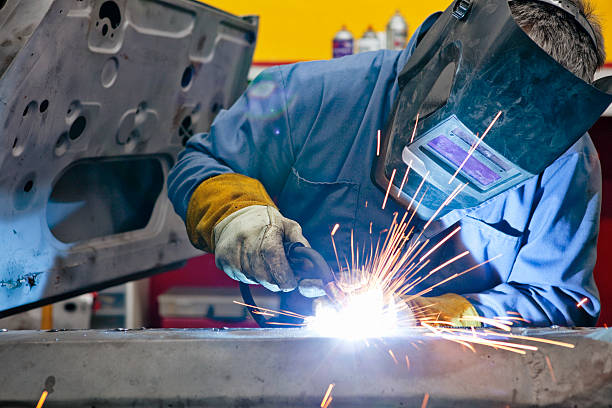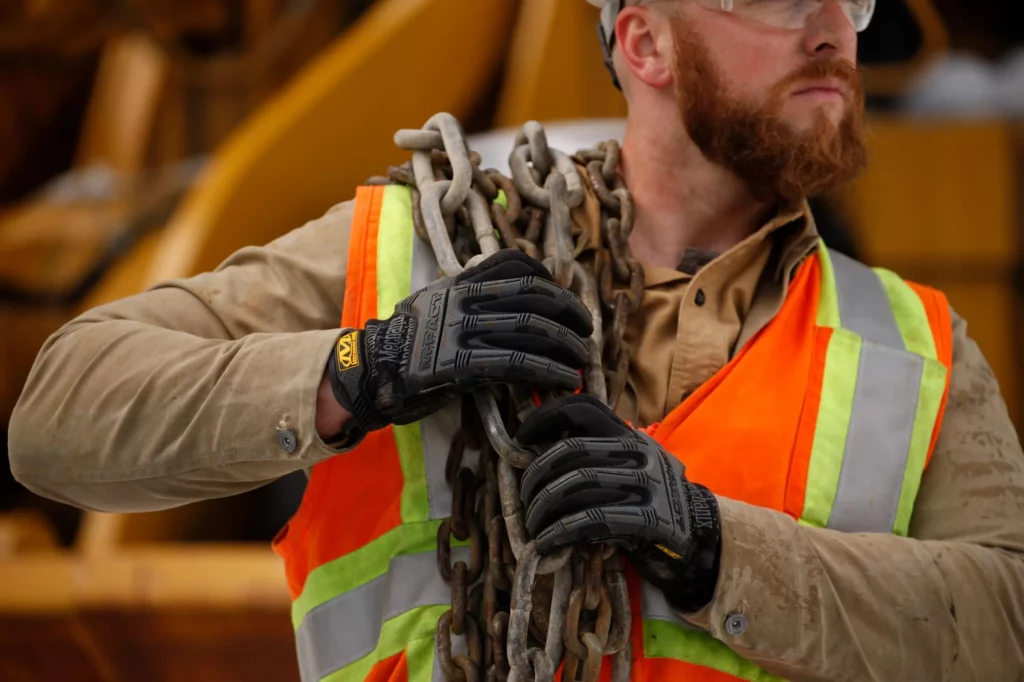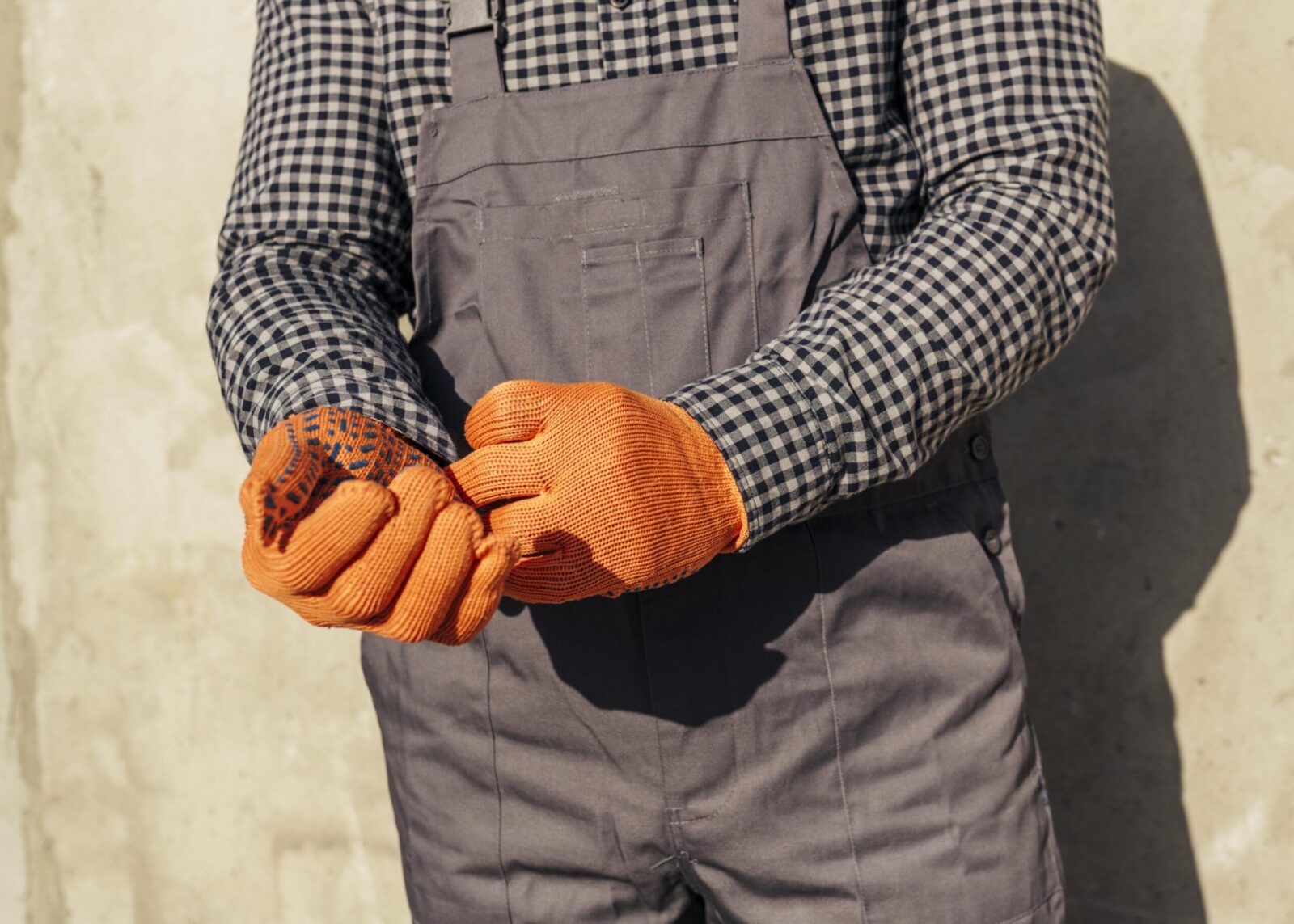
Arc Flash Gloves: Selecting the Right Protection
Choosing the right Arc Flash Gloves is key to ensuring your safety in high-risk environments like electrical maintenance or construction....

Get 10€ off on your first order!
When working in industries like construction, manufacturing, or warehousing, having the right protective equipment is essential. Impact-resistant gloves, also known as impact protection gloves or shock absorbing gloves, are designed to safeguard your hands from injuries caused by heavy materials, sharp tools, and machinery. This comprehensive guide will help you make an informed decision about the best gloves for your needs.

Impact-resistant gloves are a critical part of workplace safety. Designed to absorb shocks and protect against crushing or bruising injuries, these gloves are especially beneficial for tasks like handling heavy materials, operating machinery, and performing maintenance tasks. Their durability and ergonomic design ensure both safety and comfort, making them an invaluable asset in high-risk environments.
For a broader understanding of related protective gear, check out How To Choose The Right Work Gloves – A Buyer’s Guide.
When shopping for impact-resistant gloves, focus on these critical factors:
| Feature | Description | Importance |
| Material | Durable yet flexible, such as synthetic leather or rubber. | Ensures long-lasting use and flexibility for handling tasks. |
| Padding | Strategically placed padding to shield vulnerable areas like knuckles. | Provides cushioning against impacts and enhances safety. |
| Grip | A strong grip for handling tools or slick surfaces. | Enhances safety and control in various environments. |
| Certifications | Meets European standards like EN 388 for mechanical risks. | Ensures the gloves meet safety regulations and provide adequate protection. |
For a quick comparison of popular glove models and their features, consider this table:
| Model | Material | Padding | Grip Type | Certification | Ideal Use Case |
| Model A | Synthetic Leather | Knuckle Padding | Textured Rubber | EN 388:2016 | Heavy material handling |
| Model B | Rubber Composite | Full Palm | Anti-Slip Texture | EN 388:2016 + EN 511 | Wet and cold environments |
| Model C | High-Strength Fabric | Reinforced Fingers | Patterned Rubber | EN 388:2016 | Tool handling and precision tasks |
If your work also involves sharp objects, consider combining impact protection with cut resistance. Explore options like Cut-Resistant Gloves for enhanced safety. Also, learn more about EN Standards and Certification from this guide in wikipedia.
Impact-resistant gloves are suitable for a variety of industries and tasks:
Choosing the correct size is crucial for both comfort and functionality. Most European brands follow a standard size chart:
| Size | Hand Circumference (cm) | Hand Length (cm) |
| S | 17-19 | 17 |
| M | 19-21 | 18 |
| L | 21-23 | 19 |
| XL | 23-25 | 20 |
| XXL | 25-27 | 21 |
Ensure your gloves provide a snug fit without restricting movement. Many top brands like Portwest and Showa offer a wide range of sizes to cater to various needs.
Here are some trusted European suppliers known for their high-quality impact-resistant gloves, along with what makes them stand out:
In some cases, impact-resistant gloves alone may not suffice. Depending on your tasks, you might need additional protection:
To ensure your gloves last longer and perform optimally, consider using specific cleaning products tailored to their material:
For more specialized advice, refer to How To Choose The Right Anti-Vibration Gloves – A Buyer’s Guide.
To extend the lifespan of your impact-resistant gloves, follow these tips:
Investing in the right pair of impact-resistant gloves can make a significant difference in workplace safety. With options from trusted suppliers like Nitras and Skydda, you can find gloves tailored to your specific needs. Don’t forget to evaluate additional protective gear like cut-resistant gloves for comprehensive hand safety.
For those ready to purchase, explore top-rated options such as Model A, Model B, or browse our curated collection of impact-resistant gloves here.
– The Droppe Team
Impact-resistant gloves are commonly made from durable materials such as synthetic leather, rubber composites, or high-strength fabrics. These materials are chosen for their ability to provide protection, flexibility, and durability in high-risk environments.
Check for certifications like EN 388, which measures protection against mechanical risks. Gloves with additional padding, especially on knuckles and palms, and reinforced materials are indicators of true impact resistance.
Some impact-resistant gloves also include cut-resistant features, but not all do. If you need protection against sharp objects, look for gloves that offer both impact and cut resistance, such as those meeting standards like EN 388 for both impact and cut performance.
Yes, many models are designed with insulation or thermal lining for cold environments. Look for gloves with certifications like EN 511 for protection against cold temperatures.
While these gloves are designed to protect, high-quality models ensure ergonomic design and flexibility to maintain dexterity for handling tools and performing precision tasks.
The lifespan of impact-resistant gloves depends on the frequency of use and the work conditions. With proper maintenance, high-quality gloves can last several months or longer. Regularly inspect and replace gloves showing significant wear or damage.
Yes, many manufacturers produce gloves in a wide range of sizes, including smaller sizes designed for women or individuals with smaller hands. Brands like Ejendals and Traffi often offer inclusive size options.
Impact-resistant gloves are primarily designed for industrial use, but they can be suitable for activities requiring hand protection, such as motocross, mountain biking, or climbing. Always check if the gloves meet the specific needs of your activity.
Impact-resistant gloves are designed to protect against forceful impacts and crushing injuries, while anti-vibration gloves minimize vibrations from power tools or machinery. Some gloves combine both features for comprehensive protection.
Not all impact-resistant gloves are waterproof. If you require waterproof protection, look for models with a rubber or composite outer layer or those specifically designed for wet environments.
Thank you! You've signed up for our newsletter.



















Choosing the right Arc Flash Gloves is key to ensuring your safety in high-risk environments like electrical maintenance or construction....

Choosing the right Rubber Insulating Gloves is essential for safety in electrical work, but with so many options, it can...

Are you looking for the right electrical insulating gloves to ensure your safety? This guide will help you understand the...

Choosing the right Arc Flash Gloves is key to ensuring your safety in high-risk environments like electrical maintenance or construction....

Choosing the right Rubber Insulating Gloves is essential for safety in electrical work, but with so many options, it can...

Are you looking for the right electrical insulating gloves to ensure your safety? This guide will help you understand the...
Get 10€ off on your first order!
Save 30% by buying directly from brands, and get an extra 10€ off orders over €100
Save 30% by buying directly form brands, and get an extra 10€ off orders over €100